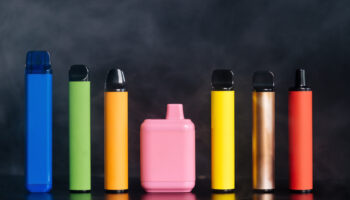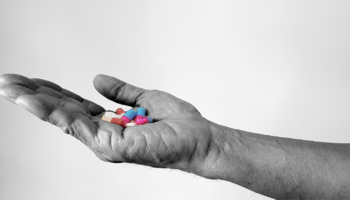Recovery: How to Take Your First Steps
The Nystrom & Associates providers consulted for this article on recovery are Dr. Karin Ryan, PsyD, LP; Brett Cushing, MA, LMFT; and Christa Overson, LMFT.
Are you wanting to begin your recovery journey but don’t know where to start? Taking the first steps toward recovery can feel overwhelming—but you’re not alone.
If you’re struggling with an unhealthy relationship with substances, it’s common to feel guilty or ashamed. But recovery is possible, and support is available.
According to the 2022 National Survey on Drug Use and Health, nearly 1 in 6 Americans struggle with a substance use issue, making it a significant public health concern. Fortunately, the journey to recovery doesn’t have to be walked alone.
In this article, we’ll discuss how to recognize a substance use issue in yourself or a loved one and how to take your first steps toward recovery.
Related: Prefer to listen? Check out the Everyday Therapy podcast episode on recovery here
What Does Recovery Look Like?
Before seeking help, it can be helpful to understand the signs of a substance use disorder. Recognizing these signs in yourself takes courage and self-awareness. It's also the first—and often hardest—step on the road to recovery.
According to outpatient therapist Brett Cushing, one of the main indicators is whether substance use is affecting your overall quality of life. Dr. Karin Ryan offers several additional signs to look for:
- Difficulty cutting back on your substance use
- Concerns from others about your use
- Struggling with daily tasks because of your use
- Avoiding certain activities or adjusting your schedule to accommodate substance use
If any of these experiences sound familiar, it might be time to take that brave first step toward recovery.
Related: Am I Addicted? Symptoms and Treatment Options
How to Ask for Help
Beginning the recovery process can feel overwhelming, but the good news is—you don’t have to do it alone.
Dr. Ryan emphasizes that reaching out is the most crucial first step:
“The bravest thing you can do is start talking to somebody,” she advises. “Don’t feel like you have to deal with it by yourself.”
When you're ready, contacting a clinic that specializes in recovery and substance use disorders is a strong next step. That first call can feel daunting, but it leads to your intake appointment—the place where healing begins.
Related: PTSD & Substance Use: Is There a Connection?
What to Expect at Your Intake Appointment
Your first visit typically involves meeting with an LADC (Licensed Alcohol and Drug Counselor). They'll ask questions about your history and substance use and help determine the next best step in your recovery journey.
Many people worry about judgment during this process, but Dr. Ryan offers important reassurance:
“That can feel really overwhelming. You may find yourself thinking, ‘Oh my gosh, are they going to evaluate and judge me?’ No—they’re trained in this, and they get it. Many of our LADCs who work here are actually in recovery themselves or have had loved ones [in recovery], so they are in this for a reason.”
Next Steps After in Recovery
After your assessment, your counselor will provide a treatment recommendation based on your needs. This might include attending a group once a week, seeing a counselor individually, or another option.
No matter what’s recommended, the next step is always your choice. At Nystrom & Associates, our team is here to empower—not pressure—you. Our goal is to meet you where you are and walk alongside you in your recovery.
Related: How to Help a Loved One with Addiction Recovery
A Word from Nystrom & Associates on Recovery
Each person’s recovery journey is unique—and it's never a straight line. It's common to feel hopeless at the start, but hope is at the heart of recovery.
Christa Overson offers this reminder:
“Sobriety is possible. This is a condition that can be treated and recovered from.”
No matter where you are on your path, it’s never too early—or too late—to begin. Recovery is not about perfection. It’s about progress, healing, and discovering that you're not alone.
Ready to Begin?
If you or someone you love is struggling with substance use and ready to explore recovery options, Nystrom & Associates is here to support you every step of the way.
Call 1-844-NYSTROM or request an appointment online to take your first step toward healing.






